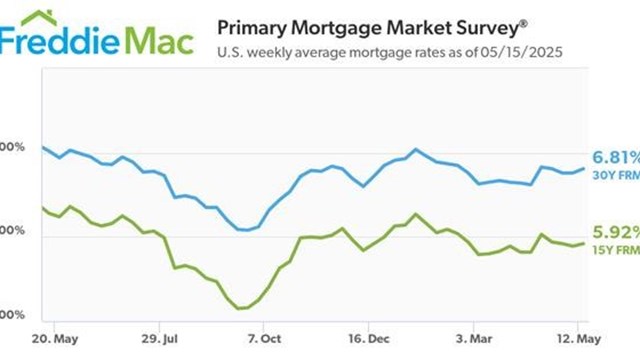Both locally and nationally, 2022 was a year of contradiction in the real estate industry. The year began on the coattails of 2021, one of the strongest markets for homes in recent history. By early spring, with inflation rising at a pace not seen in four decades and prices rising for both owned and rented homes and apartments, there was concern in the air that interest rates might be increased to fight inflation. Those concerns proved warranted; over the course of the year, the Federal Reserve raised interest rates four times, doubling the available interest rate for home purchases from around three percent to near seven percent. Yet according to industry analysts and experts, housing prices have not declined—at least not yet.
A Deeper Dive
The story of 2022 is not solely one of rising interest rates. It’s an amalgam of multiple factors that resulted from the COVID pandemic that began in 2020. One of the most defining features of that pandemic on home sales was the buying frenzy fueled by city dwellers making the move to suburbs throughout the country—a trend accelerated by the availability of financing at historically low interest rates. The exodus from cities to suburbs by 2021, urban markets began to spring back. Buyers’ appetite for apartments all over New England, but particularly in Boston, was ravenous.
“The year 2021 was a rocket ship for sales,” says Jonathan Miller, CEO and principal at NYC-based Miller Samuel Real Estate Appraisal and Consulting, and an expert on real estate market data. “With the tremendous surge in sales activity, Boston’s existing inventory was obliterated. It was scraped clean because mortgage rates were too low for too long. This led to record home prices throughout the region, bidding wars, huge sales volume, and ultimately inventory collapse. A year later, in the spring of 2022, mortgage rates began to rise. Boston’s market though, is still characterized by prices rising, but at a slower rate.”
Even more than the increase in interest rates however, record numbers of sales in 2021 caused the volume of sales to drop in 2022. “Sales go negative on a year over year basis,” says Miller. That’s the number of properties sold relative to the number sold in the same period in the prior year. What was somewhat unexpected in the Boston metro area is that inventory is flat and/or declining. Some subsets are rising, but overall we are seeing falling inventory. It’s unusual historically, but the trend we see is that because mortgage rates were at record lows prior to the spring of 2022. Many people either purchased during the pandemic or refinanced, and are now wedded to their rates and are therefore reluctant to become buyers.” Which in turn means they’re not listing their homes or apartments for sale.
“In a lot of markets,” reiterates Miller, “inventory is half what it was before the pandemic—and that lack of inventory is the metric to focus on for 2023. An example to focus on to understand the problem is Darien, Connecticut. Pre-pandemic, inventory in Darien was floating at around 200 units, depending on seasonal factors. After lockdown, inventory dropped to, say, 50 units in the same market. A year later, before rates went up, inventory fell to just 12 units.”
Interest Rates
The increase in interest rates was quite specifically intended to drive down inflation, with the Fed viewing an overheated housing market as part of the inflation problem. While homeowners may be celebrating a level of equity they never imagined in their homes, those same inflated prices are disrupting other aspects of their home economics. That’s not to say that the run-up in home prices caused by an overheated market is the main culprit in inflation, but it reflects the overall problem.
The Fed is expected to continue raising interest rates into 2023 to battle inflation. The question is how has that affected the market for homes, and how will it continue to affect them? “The Fed expected to continue raising rates,” says Miller, “which creates uncertainty in the market. Buyers can wrap their heads around higher rates, but if it happens every six weeks, it’s a problem.” Along with the dizzying pace of interest rate increases, those higher rates make today’s market clearly less affordable. “On the other hand,” says Miller, “for most buyers today, it doesn’t make sense to fix their monthly costs on a 30-year basis as few live in a home for that long anymore. Adjustable rate mortgages such as 7/1s, 5/1s, and other hybrids with conversion down the road are still low and as low as before the spike.”
Some Numbers
While Miller notes that the volume of condo sales in Boston has fallen by approximately 25 percent year over year from 2021, he does not report a drop in prices. To the contrary, the median price is up approximately 7.5%. He explains the patterns in the market as follows: “What happens is that initially there’s an external event—in this case rates going up—and sales slow. Then, normally, inventory rises. Next, prices fall. Except in this case, it takes a year or more for this to happen. People who don’t have to sell, just don’t sell, they wait. There are fewer bidding wars, but we are not seeing a crisis correction. Prices aren’t falling—but if this continues for another year, they may. At least at this point, there’s no apparent suggestion of a correction, because inventory is not bloated.”
Overall in Boston, listing inventory for condos fell 13.8%. But as mentioned previously, prices are still up. Price trends are the caboose on the train, as it were; they’re a lagging indicator. The pattern for one- to three-family homes in downtown Boston demonstrates a similar strength. According to Miller’s numbers, median price is up 15.3% and the volume of sales is down 19% from last year, with listing inventory dropping 32.7%
What’s Ahead?
Miller’s crystal ball, which he jokes is “held together with duct tape,” suggests that what happens in 2023 depends on what happens with interest rates. “You can’t predict the Fed’s actions,” he says. “The expectation is that there will be at least a couple more increases. Ironically, the reason for continuing to increase rates is that the economy is showing strength. We are expecting less units will be sold overall in 2023 than in 2022, but that depends on the direction of rates. Normally, we don’t overemphasize rates, but because they have gone up so dramatically and the economy is still robust, it’s not a dire situation for the housing market yet—just less activity. We don’t see a strong expectation of negative price trends. If current conditions remain the same, they will be modest—if any.”
The View From the Trenches
“My experience in 2022 with respect to condominium sales was very positive,” says Lee Joseph, a broker located in Worcester, Massachusetts. “Sales were brisk and buyers plentiful, with sellers getting more than they were asking in many cases. Condos—especially if they offered a first-floor bedroom and full bath—were a target for the baby boomers. Inventory was lacking and buyers exercised all possible sales options, including condos. Going forward into 2023, I think there will be a shortage of inventory.
“However,” he continues, “buyers are already starting to be more selective in their purchases. They’re not willing to jump over asking, or waive inspections. Interest rates are impacting the bottom line. Add to that condo fees and possible special assessments in some communities, and I see a much-needed correction in pricing occurring.”
“Condo pricing over the last year across New England has continued to increase, despite a significant decline in available inventory,” says David Brooke, owner of Brooke Real Estate Group, based in Simsbury, Connecticut. “Sales units are down 18% from this time last year in the Massachusetts markets. Less metropolitan markets like Connecticut are not far behind at declined closed sales at 12.9%.
In terms of pricing, Brooke continues, “In recent months in certain markets throughout New England, the market has cooled slightly. Some of this is due to cyclical fall and winter market cooling, but the undeniable effect of rising interest rates is beginning to constrict pricing increases. Seller-paid buy-downs of Buyer’s mortgage interest rates are becoming a common tool as developers and real estate agents look to tackle financing challenges amidst a challenging low-inventory environment. Just months ago, inventory was low, but financing was so attractive that recent changes in monetary policy has caused whiplash throughout the market in many ways.”
“Our prediction for 2023,” says Brooke, “is that the buyers feeling the G-force from the rapid increase and trajectory of interest rates will soon pull back even more noticeably over the next few months. It’s going to be a cold winter in the condominium housing market, but hopefully a warm spring as many analysts are predicting an inability for the housing market to sustain such a rapid climb in both cost of goods and financing, and a cool in both pricing and interest rates are expected into the spring and summer months of 2023. Stabilization is the goal, as we hope to melt from a cold winter ahead and avoid a market meltdown.”
Fasten your seatbelts. Looks like 2023 is gonna be a bumpy ride!










Leave a Comment